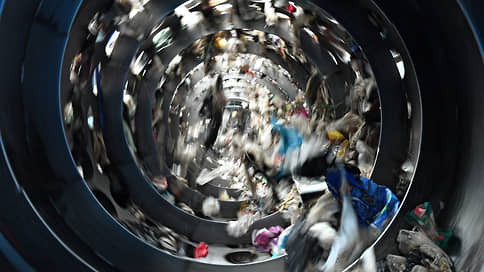The Ministry of Natural Resources described the types of waste disposal activities
[ad_1]

The Ministry of Natural Resources has published two draft government regulations needed to launch a new model of extended liability of producers and importers of goods (EPR) for waste. Among them is a “converter” document that contains a list of waste products and how they can be used for the implementation of the EPR, as well as a draft resolution on the procedure for involving the public company “Russian Ecological Operator” in the inspections of utilizers.
The first draft resolution is one of the key ones for the sector, whose companies will be considered waste disposers as part of the launch of the ROP in 2024 (they will be included in the register of Rosprirodnadzor and will receive funding from the PIC REO, see “Kommersant” dated August 18). “The EPR Law and the converter are designed to build clear rules for industry representatives. The documents reduce the number of gray areas and eliminate the possibility for a manufacturer or importer to put one product on the market and report processing to another. It will not be possible to produce packaging made of expanded polystyrene, which cannot be recycled or recycled, but to close the liability with a PET bottle,” explains Alexander Kozlov, head of the Ministry of Natural Resources.
In the laboratory for the study of the circular economy of the IGSU RANEPA, they interviewed their pool of processors, who concluded that the “converter” quite harmoniously describes the work of recycling plastic, but plants for the production of “crushed” or “flex” (crushed and washed raw materials) drop out of it . “There are a lot of legally and “white” working factories with “crushed” and their products are in demand on the market. Finished products (boxes, etc.) are made from it, they are added to wood-composite materials, etc., ”explains the head of the laboratory, Sodnom Budatarov. Nikolai Pavlov, Chairman of the Presidium of the Klever Association of Waste Recyclers, notes that the converter will put an end to disputes about who is the recycler. However, “the production of flakes from plastic bottles is not recycling, but processing,” he insists. Waste paper processors also found that not all types of waste were included in the Paper Packaging group. In SRO “Klever” they hope to correct possible errors in the framework of the RIA procedure. The Ministry of Natural Resources assured Kommersant that the document “corresponds to the development of the industry and is formed taking into account the best available technologies,” and is ready to finalize the draft based on the results of public discussion.
“The list is not even half the battle. Control over the generation of waste, its movement, including to disposal facilities, effective administration of the EPR is what is really important. But none of these processes has been established so far, and it is not clear when and how they will start working,” concludes Boris Morgunov, head of the Institute of Ecology at the National Research University Higher School of Economics.
The second MEP project sheds more light on the EPR administration system.
It is assumed that the Russian Ecological Operator will become not only a regulator, but also a controller of the industry.
It will make decisions on whether the company will be included in the register of utilizers, and confirm the compliance with the reality of the parameters declared by the companies during an on-site inspection with Rosprirodnadzor. Nikolai Pavlov believes that REO can be more effective than Rosprirodnadzor. “A logical decision, since the REO was chosen to be responsible for the implementation of the federal project “Circular Economy” and the operator of the GIS for accounting for waste from the use of goods. But there are big doubts that REO has enough understanding of how the recycling market works,” says Boris Morgunov.
[ad_2]
Source link






